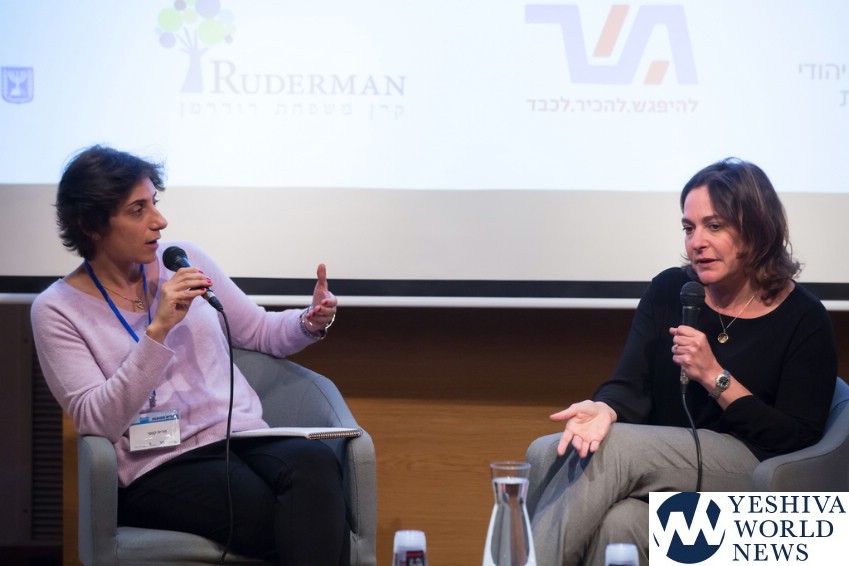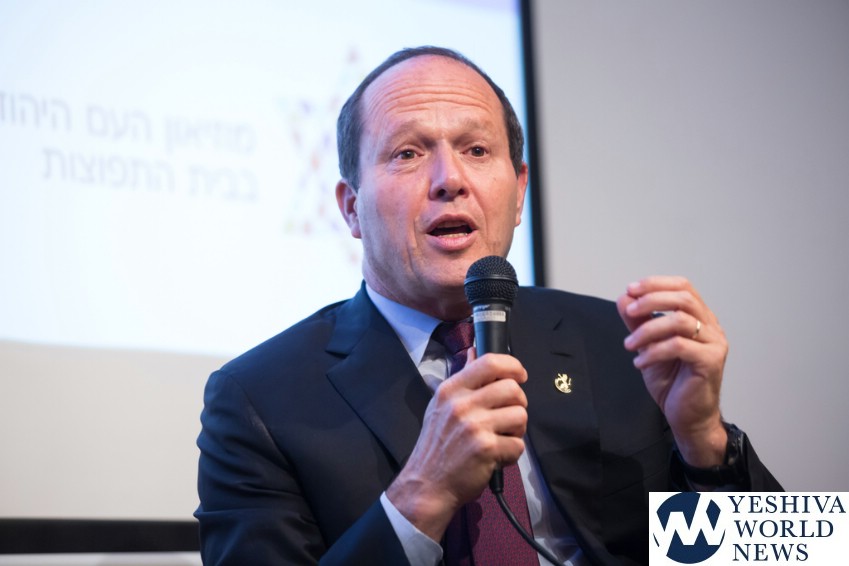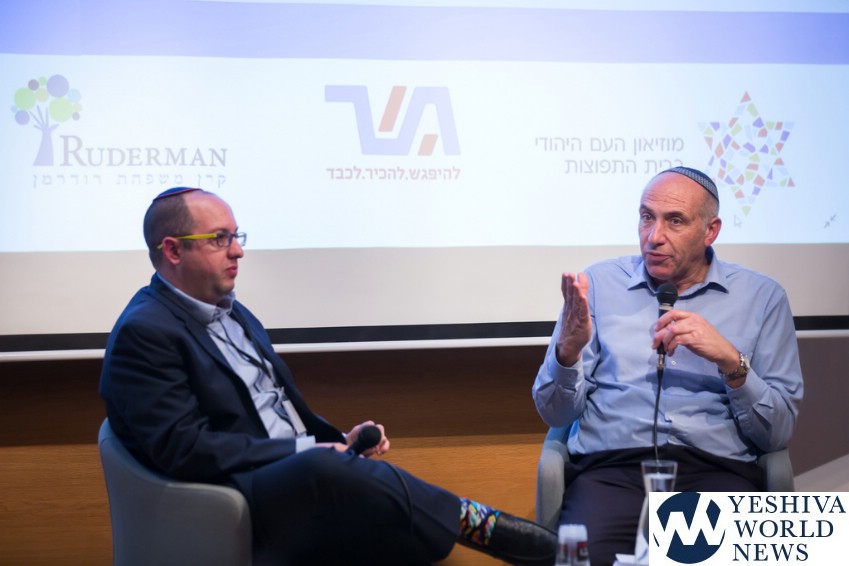Representatives of seven different political parties in Israel delved into the status of Israel’s relationship with the Jewish Diaspora during an election panel on Sunday evening at the Museum of the Jewish People at Beit Hatfutzot in Tel Aviv. The panelists, however, were forced to do more than just give rhetoric. Each was asked if his or her respective party is prepared to request or demand the Diaspora portfolio in the next government in order to build upon or improve Israel-Diaspora relations. Only two out of the seven panelists expressed a desire on behalf of their parties, Labor and the New Right respectively, to do so. The other five representatives were each from Likud, Blue and White, Meretz, the Jewish Home and United Torah Judaism.
“I married a new immigrant from South Africa and the issue of Diaspora Jewry is very important to me, but as mayor I was more interested in absorption and less in immigration,” admitted Nir Barkat, former mayor of Jerusalem and now Likud candidate for Member of Knesset. “They (Jews in the Diaspora) have an opinion and that’s legitimate. That does not mean that we have to agree with everything they say and to accept their positions.”
Bayit Yehudi MK Moti Yogev was open and frank about his priorities. “The societal portfolios are closer to my heart. I am less of an expert on Diaspora Jewry, and I have twice made efforts to be in the absorption and immigration committee.”
Caroline Glick, an Anglo Israeli candidate for MK from the New Right, said that she would “be delighted” to receive the Diaspora portfolio. She also delved into the challenges facing Israeli-American Jewish relations. “The problem with American Jewry is not an abandonment of Zionism but rather the assimilation and abandonment of young Jews from the Reform and Conservative movements in the United States. The solution is to infuse the Zionist bug in them once again and to convince them that Israel is the greatest miracle that has happened to the Jewish people.”
Glick also shared a personal account with the audience of how she had left the Conservative Movement to join the Orthodox Movement after members of her family’s congregation in Chicago criticized Israel during Operation Protective Edge in 2014.
MK (Labor) Stav Shafir who also expressed a desire to receive the portfolio claimed that “in Netanyahu’s government, Israeli-US Jewry relations have turned from a strategic partnership into a political issue.” Shafir also referred to the phenomena of the BDS movement and an increase in support for anti-Israel organization from American Jews. “I hear what Jews think about Israel and I am appalled. There are those who support BDS, and they are making a terrible mistake, because the boycotting movements increase the gap between us and Diaspora Jewry and in an absurd way, strengthen Netanyahu.”
Yitzhak Pindrus, the representative of Yahadut Hatorah said that he felt there were other parties who would be no worse than his party in assuming the Diaspora portfolio. “Minister Naftali Bennett did a great job there,” he said. MK Tamar Zandberg of Meretz stressed that she would not accept the Diaspora portfolio in a government led by Prime Minister Netanyahu.
Orit Farkash-Hacohen, the panelist representing “Blue and White,” said it remains to be seen if the Diaspora portfolio would be a priority for her faction. “I do not know if we will demand the Diaspora portfolio. Our goal is to widen the gap from the Likud, but the idea is that the minister of the Diaspora should bring us closer to the Diaspora and not distance us as is happening today.” Farkash-Hacohen however, took pride in the fact that Blue and White is one of the only lists that contains a reference in its platform to Diaspora Jewry.
The panel, dubbed “Voting Diaspora,” was initiated by the Gesher Leadership Institute in partnership with the Ruderman Family Foundation, the Diaspora Ministry and the Museum of the Jewish People in Beit Hatfutzot. Explaining the choice of topic for the panel, the organizers noted the critical importance of Diaspora Jewry for Israel.
“The State of Israel has two functions: it has responsibility to its citizens, and it is the home of all the Jews in the world,” said Shira Ruderman, director of the Ruderman Family Foundation. “Those who seek the public’s trust must also answer the question of how he or she views relations between Israel and Diaspora Jewry. It is legitimate for various parties to disagree about policy deriving from this relationship, but it is important that everyone agrees that such a connection is important, both morally and practically.
“If Israel’s connection with the rest of the Jewish people were to disappear, it would be an attack on the Zionist dream and on the definition of Israel as the nation-state of the Jewish people,” Ruderman continued. “On the other hand, strengthening the connection between the state of Israel and Diaspora Jewry strengthens the Jewish character of the state and continues the Zionist dream. I thank those who participated in this important event and call on all the parties to present their respective visions on this subject.”
Shira Sherez-Zik, director of the Gesher Institute for Leadership, added: “We are currently in the midst of stormy election days when we are exposed to fierce debates between the various candidates. This evening however, we came together to speak in favor of unity and for a very important issue that for some reason has not been on the public agenda enough. The event was held in order to look directly at the politicians and ask them what they intend to do in advancing the important and strategic relationship with the Jews in the Diaspora.”



(YWN Israel Desk – Jerusalem/ Photo credit: Dror Sithakol)











